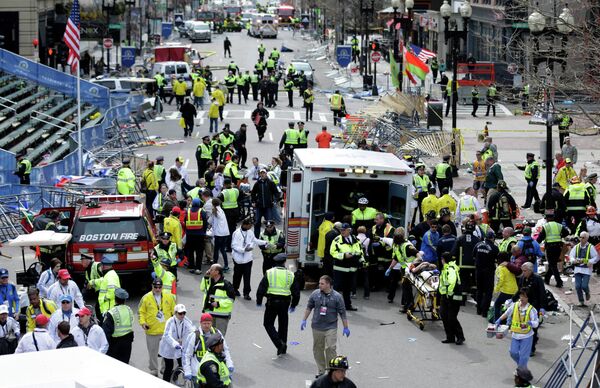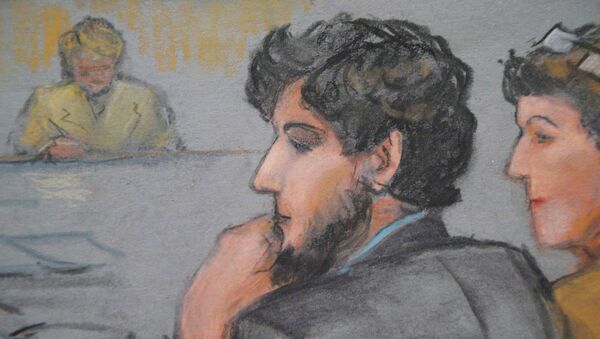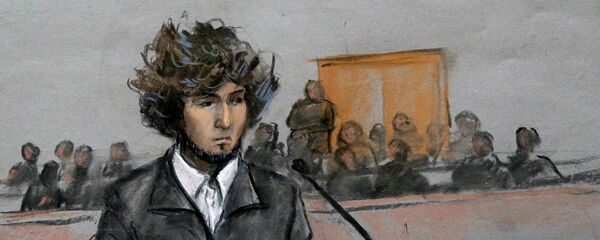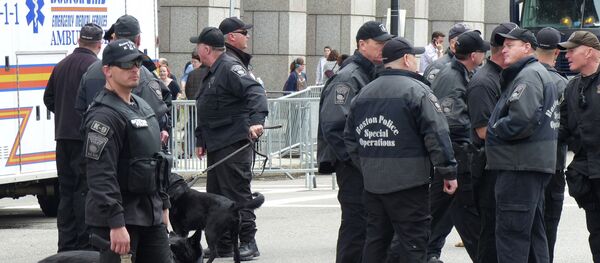Tsarnaev has been found guilty of conspiracy to use a weapon of mass destruction, and the deaths of the Boston Marathon bombing victims, as well as all other counts which could potentially carry the death penalty.
— Jim Armstrong (@JimArmstrongWBZ) April 8, 2015
Overall, the jury ruled Tsarnaev guilty on each of the 30 counts that the prosecution brought against him. The jury will now have to decide whether or not Tsarnaev will face the death penalty. The sentencing phase will begin on April 13.
"On the occasion of today's guilty verdict in the US District Court, the collective thoughts of the entire Massachusetts State Police are with the victims, survivors and families of those maimed by these cowardly acts of terrorism," the Massachusetts State Police said in a Facebook post.

The verdict was largely expected. In a highly unorthodox move, defense attorneys began their opening statements by admitting Tsarnaev’s guilt. Given the high-profile nature of the crime, and the overwhelming amount of evidence against him, the defense saw their client’s guilt as a foregone conclusion, and instead focused their efforts on avoiding the death penalty.
Tsarnaev's attorney, Judy Clarke, has negotiated plea deals for several high-profile clients, including "Unabomber" Ted Kaczynski and Arizona shooter Jared Loughner. Both men were spared the death penalty.
Moving into the sentencing phase of the trial, defense attorneys will likely pursue arguments which support the idea that because of Tsarnaev’s age, he was strongly influenced by his older brother. 26-year-old Tamerlan Tsarnaev died in a police shootout days after the bombing.
To make this case, witnesses have so far testified that Tamerlan’s fingerprints were found on much of the evidence – bomb-making material found in the brothers’ apartment, as well as extremist literature – and not Dzhokhar’s.
Prosecutors have argued that Dzhokhar researched jihadi information on his own.
Tsarnaev has not yet testified, though legal experts told Reuters that he may be compelled to do so during sentencing.
"He is fighting for his life at this point in time. What has he got to lose?" David Weinstein, attorney with Clarke Silverglate, told Reuters. "If he can put the client on the stand and humanize him and get the jurors to understand this is a life worth saving, then he needs to testify."
Jurors will ultimately decide between the death penalty and life in prison without parole.
The bombings occurred during the Boston Marathon in 2013, when two homemade pressure cooker bombs detonated, killing 3 and injuring an estimated 264 others.
The brother’s also allegedly murdered an MIT police officer three days after the bombings.
After identifying the Tsarnaev brothers through surveillance video, Tamerlan was killed during a police chase. The hunt for Dzhokhar resulted in a massive shut-down of the city, and ended when authorities found the younger Tsarnaev hiding in a boat in a Boston suburb.




